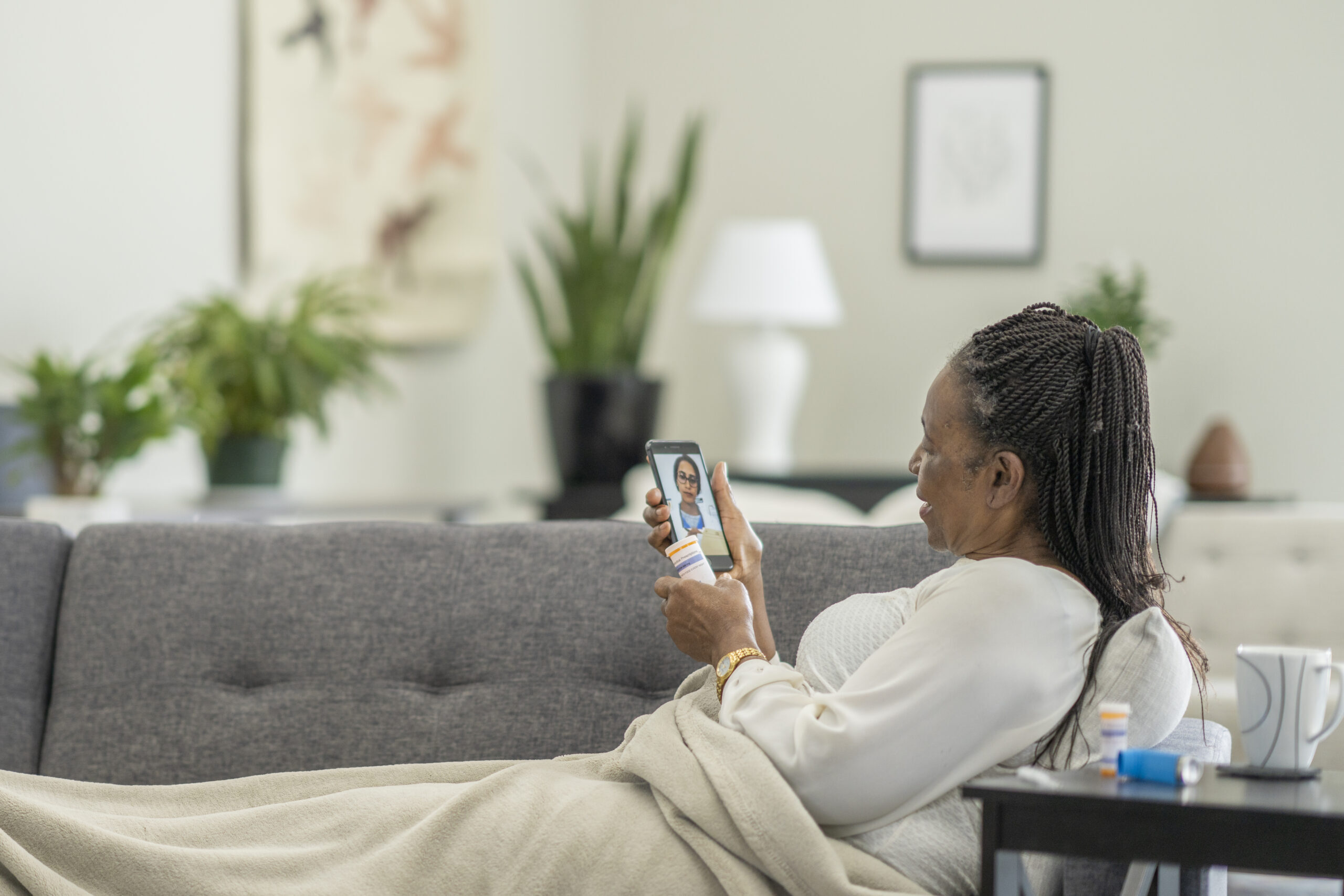Telehealth Is A Vital Tool For Mental Health Care For Minority Communities.
July is National Minority Mental Health Awareness Month. The United States is currently in the midst of a mental health crisis, an issue that is further exacerbated within minority communities due to a lack of reliable, equitable mental health care access.
Recent studies have shown that low-income minority patients are more likely to use telehealth. One study from the University of Pennsylvania found that from 2019 through 2021 telehealth access helped to increase Black patients’ primary care visit completion rates rise from 52 percent to 70 percent. This drastic increase in care access would reflect a great increase in mental health care among minority communities and emphasizes the need for permanent telehealth protections.
Telehealth allows members of minority communities to obtain greater access to behavioral health by removing the need for transportation and allowing patients to choose providers that align with their specific needs, availability, and budget. The National Association of Insurance Commissioners has found access to health care to be critically dependent on reliable transportation, and reports that high-minority-concentrated areas are often the same communities that have transportation deficits, with telehealth access, members of these communities can have greater access to care without the need for a car.
Cultural stigma also plays a role in hindering minority mental health care, however, according to the National Journal of Medicine, telehealth may play a role in helping to reduce the risk of stigma by allowing patients to receive care from the comfort of their homes. Research from athenahealth finds that 23 percent of mental health patients were more likely to seek out mental health care and receive diagnoses due to increased access to care that telehealth provides.
Lawmakers have underscored the importance of telehealth for mental health as well, with statements such as U.S. Representative Doris Matsui (D-CA-7) who said, “The pandemic forced the nation to capitalize on the benefits of virtual care, and its positive impact was crystal clear for telemental health care.” And U.S. Senator Mike Crapo (R-ID) “Whether for rural communities, urban areas or tribes, telehealth has undoubtedly expanded access in underserved areas, improved care coordination and integration, and provided more privacy to patients to combat stigma.”
Lawmakers are working to address this through legislation such as the CONNECT for Health Act, which has overwhelming bipartisan support and would make pandemic-era telehealth flexibilities, which currently expire at the end of next year, permanent.
Congress must turn words into action and protect access to virtual care, a tool that is used most heavily among minority communities, the very same communities that are least likely to receive mental health care. Telehealth is a tool that can help bridge the gap in minority mental health treatment, and Congress must create permanent protections now.
Learn more about how Congress can act now to safeguard access to telehealth HERE.
ABOUT TELEHEALTH ACCESS FOR AMERICA
Telehealth Access for America (TAFA) is a public education campaign supported by leaders in health care committed to better care, expanded patient choice, and protecting access to critical telehealth services.

